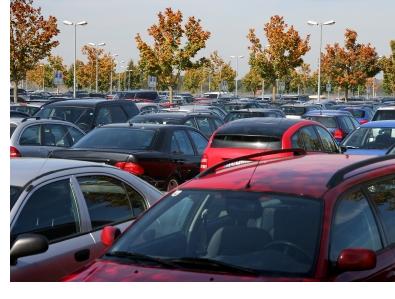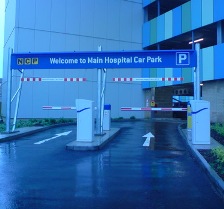 Plans by the previous Labour government to ban hospitals in England from charging patients for parking are unlikely to go ahead after the Tory-Lib Dem coalition indicated it was likely to leave the decision in the hands of individual NHS trusts.
Plans by the previous Labour government to ban hospitals in England from charging patients for parking are unlikely to go ahead after the Tory-Lib Dem coalition indicated it was likely to leave the decision in the hands of individual NHS trusts.
Health minister Simon Burns said: “For a long time we have been unconvinced that Labour’s car parking idea was properly funded and practical.”
“It is clear that where parking charges are making it difficult for staff to do their jobs properly, where they are damaging patient access to services, or preventing friends and family from visiting then hospital trusts have a responsibility to respond to those factors.”
Andrew Davis, director at the Environmental Transport Association (ETA), said: “Exorbitant NHS parking charges are a tax on the sick, but free parking would lead to such overcrowding that the sick would no longer be able to get to hospital in the first place.”
“Clearly we need to see better public transport links to hospitals, but we also need to ask whether staff deserve parking spaces more than patients.”
ETA comment: Should hospital parking be free?
On the face of it there is a certain logic in making parking free. This helps make sure that health is free at the point of use. Some consider parking charges to be a tax on the ill.
 Travel to hospitals needs to be actively managed. Each mode, be it walking, cycling, bus, train, taxi or car needs to be considered by the hospital as part of a comprehensive plan. The type of traveller is important too – the needs of the staff, patients, suppliers and visitors are different. Some staff are peripatetic, others remain at the hospital all day.
Travel to hospitals needs to be actively managed. Each mode, be it walking, cycling, bus, train, taxi or car needs to be considered by the hospital as part of a comprehensive plan. The type of traveller is important too – the needs of the staff, patients, suppliers and visitors are different. Some staff are peripatetic, others remain at the hospital all day.
As a general rule, all-day parkers should park further away from the entrance than short-stay parkers. If the parking spaces closest to the entrance are reserved for the consultants it is not the best of signals to send out to the public.
Active management need not be limited to car park time limits or charges. Hospitals occasionally advertise for staff along the best public transport routes to reduce the demand on the car park.
Of course, all hospitals should have their own travel policy available online or in their foyer so that local people could judge the merits of the decisions made. However, it is the location of a hospital which is most important. Following the general rule of location that the more people visiting a site per hectare the closer it should be to the town centre, subject to wider considerations, as hospitals have many visitors they should be as close to the town centre as possible. In recent decades the health service has done the opposite and built hospitals in out of town sites – this policy should be reversed.
0 Comments View now